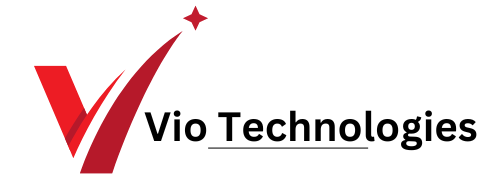Your Pathway to Career Success
We provide expert placement services, career guidance, and skill development to help individuals secure the right job opportunities. With strong industry connections, we ensure a smooth transition from learning to employment, empowering you to achieve your career goals.

Overview
DevOps
- Our DevOps training is designed to help you master the principles of continuous integration and continuous deployment (CI/CD) along with infrastructure automation.
- You will learn containerization using Docker and Kubernetes, configuration management with Ansible, and cloud integration to streamline development workflows.
- This course focuses on real-world implementation of DevOps tools like Git, Jenkins, Terraform, and monitoring solutions to optimize software delivery pipelines. By the end of the program, you will be equipped with the skills to bridge the gap between development and operations, ensuring faster deployments and improved efficiency in IT environments.
Overview
Linux
- Our Linux training provides in-depth knowledge of Linux system administration, shell scripting, networking, and security to help you manage enterprise environments effectively.
- You will learn to configure and maintain Linux servers, troubleshoot system issues, manage user access, and secure operating environments. The course includes hands-on labs covering file systems, process management, and performance optimization, ensuring you gain practical expertise.
- Whether you are a beginner or an experienced professional, this training will enhance your ability to manage and operate Linux-based infrastructure efficiently.


Overview
Server and Networking
- Servers and networking form the backbone of digital communication, supporting data exchange and resource sharing across organizations.
- Understanding server architecture, installation, and configuration is crucial for maintaining efficient IT operations. Servers power applications, databases, and websites, ensuring seamless service delivery. Networking fundamentals, including TCP/IP (Transmission Control Protocol/Internet Protocol), DNS (Domain Name System), and DHCP (Dynamic Host Configuration Protocol), define how devices communicate over a network.
- Network security measures, such as firewalls, intrusion detection systems, and encryption protocols, safeguard data from cyber threats. Troubleshooting network issues and optimizing connectivity enhance efficiency, ensuring smooth operations for businesses and individuals alike.
Overview
Cloud Computing
- Cloud computing has revolutionized IT by offering on-demand access to computing resources, reducing the need for physical infrastructure. The three primary cloud service models—IaaS (Infrastructure as a Service), PaaS (Platform as a Service), and SaaS (Software as a Service)—enable businesses to scale operations efficiently.
- Deployment models include public, private, and hybrid clouds, each catering to different security and performance needs. Cloud security is a key concern, with measures such as identity and access management (IAM), data encryption, and compliance protocols ensuring data integrity.
- Organizations leverage cloud computing for enhanced scalability, cost optimization, and streamlined management, making it a vital component of modern IT infrastructure.


Overview
ITIL and Service Management
- The IT Infrastructure Library (ITIL) provides best practices for service management, ensuring IT departments deliver high-quality support.
- A well-functioning service desk handles incidents, manages support tickets, and ensures timely resolutions. Key processes such as incident management, problem resolution, change management, and release management help organizations maintain service continuity and prevent recurring issues.
- Service level agreements (SLAs) define expectations, while capacity and availability management ensure that IT resources align with business needs. Implementing ITIL best practices enhances operational efficiency and improves customer satisfaction.
Overview
Ansible
- Learn how to automate IT infrastructure with Ansible, one of the most widely used configuration management tools. Our training covers playbook writing, inventory management, automation of repetitive tasks, and system provisioning.
- You will gain expertise in deploying and managing multi-tier applications across cloud and on-premise environments, ensuring seamless configuration and deployment.
- With hands-on projects, you will learn how to reduce manual effort, eliminate errors, and improve system scalability, making you proficient in infrastructure as code (IaC) best practices.


Overview
Storage
- Our Storage Management course covers essential storage concepts, including SAN (Storage Area Networks), NAS (Network Attached Storage), RAID configurations, and cloud storage solutions. You will learn how to configure, manage, and optimize storage systems to ensure data reliability and availability.
- The training also includes backup strategies, disaster recovery planning, and performance tuning, making it ideal for professionals working in enterprise IT environments.
- By the end of the course, you will have the knowledge to design and implement efficient storage solutions that support high-performance computing and large-scale data management.
